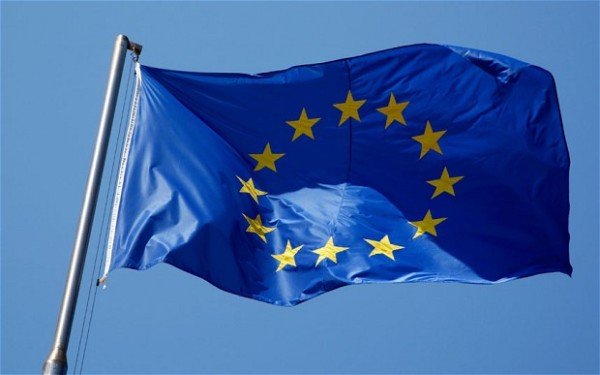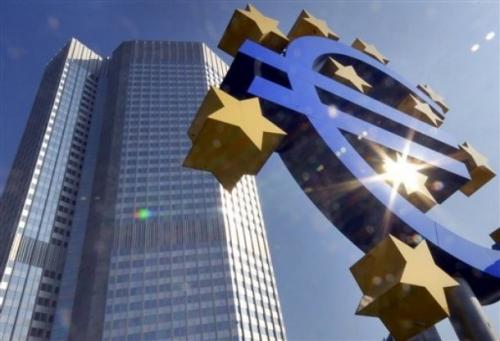Home Tags Posts tagged with "inflation rate"
inflation rate
The eurozone inflation returned to zero in October 2015 from (-0.1%) in the previous month.
According to Eurostat estimates, price growth in food, alcohol and tobacco increased slightly, while energy prices were still considerably lower than last year.
The EU statistics agency also estimated the unemployment rate in the 19 countries that use the euro was 10.8% in September, down from 10.9% in August.
The rate for the 28 EU members was 9.3%, down from 9.4% the month before.
The eurozone rate is the lowest since January 2012 while the rate for the whole EU is the lowest since September 2009.
Greece had the highest rate at 21.6%. The country is expected to be higher but has yet to report September figures, while Germany had the lowest at 4.5%.
The inflation figures are an early, flash estimate from Eurostat and so are not broken down by member state.
It does give broad indications of which groups of products have gone up or down.
Food, alcohol and tobacco prices were estimated to be rising 1.5% in October, compared with 1.4% in September.
Energy prices were falling an annual 8.7%, compared with 8.9% a month earlier.
Services prices were up 1.3% compared with 1.2% the month before.
European Central Bank President Mario Draghi suggested this month that he might be prepared to extend the bank’s program of quantitative easing given the low levels of eurozone inflation.
Japan’s inflation rose at an annual rate of 3.4% in May 2014, the fastest pace in 32 years, as the effect of the sales tax hike started to be felt.
Japan raised its sales tax rate from 5% to 8% on April 1.
The price growth in May follows a 3.2% jump in April and is a big boost for Japan’s attempt to trigger inflation.
Japan has been battling deflation, or falling prices, for best part of the past two decades and that has hurt domestic demand and stifled growth.

Japan’s inflation rose at an annual rate of 3.4 percent in May 2014, the fastest pace in 32 years (photo Getty Images)
The Japanese government has taken various steps over the past few months to try and reverse this trend, and the country’s central bank has set a target of a 2% inflation rate.
The measures, which include boosting the country’s money supply, have started to have an impact and consumer prices in the country have now risen for 12 months in a row.
Policymakers have been hoping that once prices start to rise, consumers and business will be encouraged to start spending and not hold back on purchases, as they may have to pay more later on.
The tax hike in April was the first in 17 years.
The increase comes as Japan is facing rising social welfare costs due to an ageing population.
At the same time, Japan is trying to rein in its public debt – which at nearly 230% of its gross domestic product (GDP) is the highest among industrialized nations.
The tax hike is expected to help ease some of the financial burden of the government.
At the same time, the increase may also help to trigger inflation as businesses pass on the hike to consumers, resulting in increased prices of goods.
Some analysts said that the inflation data of the past two months indicated that so far businesses had been doing that.
[youtube FQr4oXaKCZI 650]
China’s inflation rate hit a 10-month high in February after Lunar New Year festivities drove up food prices.
Consumer prices rose 3.2% from a year earlier, with food prices up by 6%.
Inflation has been a hot political issue in China. There have been concerns that if consumer prices rise too much, it may prompt Beijing to tighten monetary policies, which in turn may hurt China’s growth.
However, analysts said the latest data was unlikely to prompt any such moves.
They argued that the price growth was driven mainly by the Lunar New Year celebrations, which are traditionally associated with an increase in consumer spending.
“We expect limited market and policy impact as investors and officials understand the Lunar New Year distortions quite well,” Bank of America Merrill Lynch analysts said in a note after the data was released over the weekend.
“Though policymakers should be wary of inflation later this year with economic growth recovery, it’s too early to call for significant monetary tightening at present,” they said.
After years of experiencing a blistering pace of growth, China has seen its economic expansion slow in recent times.

China’s inflation rate hit a 10-month high in February after Lunar New Year festivities drove up food prices
In 2012, China grew at a pace of 7.8%, its weakest performance in 13 years.
Prompted by slowing growth, China has taken various steps over the past months to spur a fresh wave of economic growth.
It cut interest rates twice last year, to bring down the cost of borrowing for consumers and businesses. It also lowered the amount of money that banks need to keep in reserves in an attempt to boost lending in the country.
On the investment front, Beijing approved infrastructure projects worth more than $150 billion.
Some analysts said that if China continues to pursue easy monetary policies, consumer prices may rise further in the latter half of the year.
“If monetary policy remains at the current loose stance, consumer price index in 2013 will likely be much higher than the 3.5% target set in the National People’s Congress,” said Zhang Zhiwei, an economist with Nomura.
China set a target of 3.5% inflation rate for the current year at the National People’s Congress, its annual parliamentary session, last week.
However, in his final appearance at the congress, outgoing Premier Wen Jiabao warned that keeping prices in check will remain a key challenge for the policymakers.
“There are relatively big inflationary pressures this year, mainly because there are pressures on China’s land, labor, agricultural products and services,” Wen Jiabao said.
“And major countries are stepping up loose monetary policy, so we can’t overlook imported inflationary pressures.”
The European Central Bank (ECB) has announced it reduces its key interest rate from 1% to 0.75%, a record low for the eurozone.
The move comes as the eurozone economy continues to be weak.
The ECB also cut its deposit rate, from 0.25% to zero.
A cut in the ECB’s deposit rate is designed to stimulate lending between banks, as funds placed with commercial banks overnight are currently receiving 0.3% in interest.
Surveys released earlier this week indicated that the eurozone’s service sector had continued to shrink in June and that business confidence had fallen.
The ECB’s president, Mario Draghi said the eurozone was likely to show little or no growth in the second quarter of the year, but should recover somewhat by the end of the year.

The European Central Bank reduces its key interest rate from 1 percent to 0.75 percent, a record low for the eurozone
Mario Draghi, said the eurozone economy faced risks, but that inflation did not appear to be a threat: “Inflation rate pressure…has been dampened. At the same time, economic growth in the euro area continues to remain weak, with heightened uncertainty weighing on confidence and sentiment.”
At a media conference following the announcement of the decision he was asked it the situation was as bad as in 2008, to which he replied: “Definitiely not. We are not there at all.”
The rate cuts come despite an inflation rate running above the 2% target for the single-currency zone.
But the rate has been sliding recently and is expected to fall to an average of 1.6% next year.
An interest rate below inflation is meant to discourage saving and promote investment, as the interest rate does not keep pace with inflation, meaning the value of the money on deposit is eroded.
The interest rate cut is the third since Mario Draghi became ECB president late last year.
Mario Draghi said the decision on rates was unanimous.




